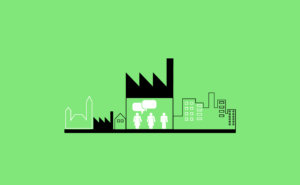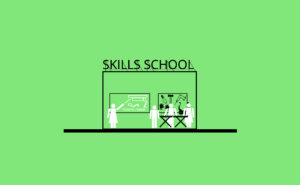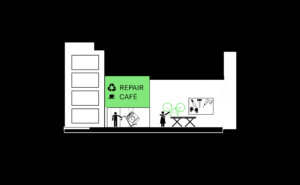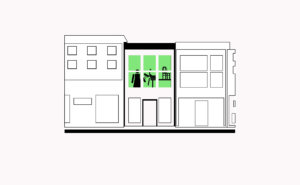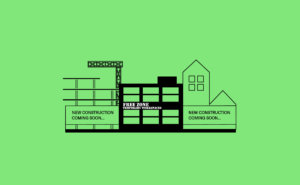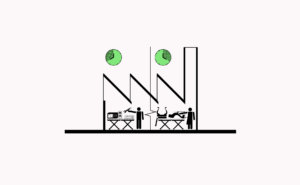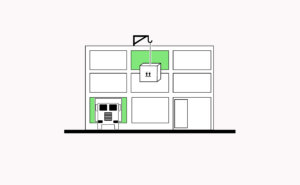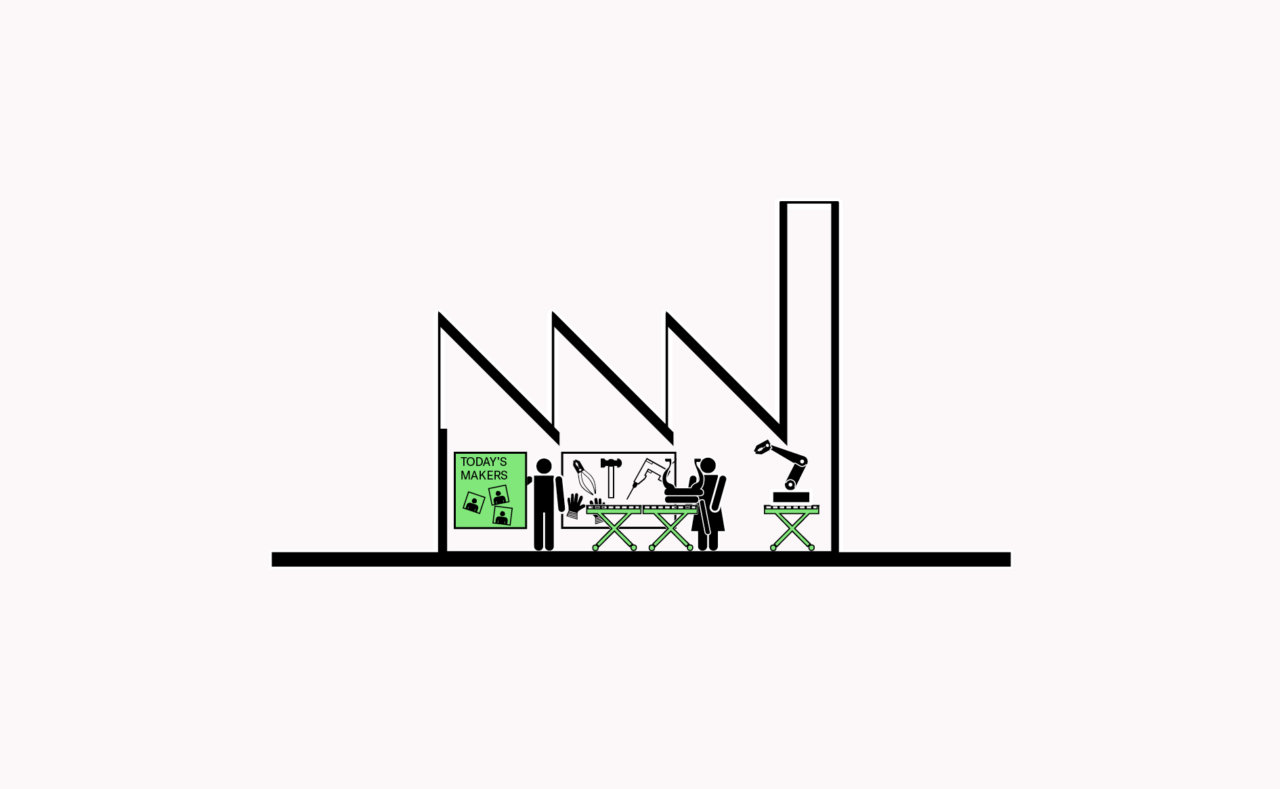
P.2 Shared Making Spaces & Technology
Smart use of space and technology through sharing can increase accessibility to expensive equipment, make more effective use of technology, while encouraging knowledge transfer between manufacturers.
[Context] Manufacturing often requires a high level of capital investment for assets such as space and technology. For start-ups trying to break into the market, upfront costs can neuter good and viable ideas before they can even be developed. For designers, sharing technology is essential to access machines to develop realistic prototypes. For smaller scale makers, particularly those in the construction industry or in cultural events, having access to large machines and flexible production space is essential as neither are required on a daily basis and both real estate and technology prices make them difficult for a small business to own outright. Finally, makers may require occasional use of a tool or machine to deal with a specific problem, yet cannot justify the purchase costs for occasional use. Sharing can thus come in many guises. Sharing technology, in the form of renting, is an age-old business. Fablabs and maker spaces are taking on the role of the 21st library for designers and small-scale businesses. More recently, new digital platforms for sharing are revealing opportunities to share the inherent risks of ownership, termed the ‘access economy’. Exchanges and matchmaking can be based on a local currency or a barter system. Sharing technology and space can offer much more. It can be a basis for sharing knowledge (the ‘industrial commons’), for sharing interests and to pool collective action. This is particularly oriented to various complementary businesses sharing certain skills or production capacities.
[Problem] Both new and established entrepreneurs are limited by large capital investment required to purchase new equipment and acquiring space. Furthermore accessing finance from banks or finding suitable R.11 Incentives for Research & Development is a serious limitation for small and new businesses with little credit history. Rapidly changing consumer trends and adaptations in technology also results in the need to constantly change and adapt. This adds more risk to any investment. Furthermore, real estate is an even larger investment commitment that requires a long-term stable business model. For makers that don’t own their land, there is a risk of making longterm commitments (see R.9 Assured Security of Space) as contracts can be cut or not renewed. Being forced to move could put investments and business operations in jeopardy as space, technology and location can be heavily interlinked. Finally, many manufacturers, particularly those involved in construction related activities, use their workshop in waves resulting in wasted space and rental costs. Many such businesses are aware that they could share space, but it remains a novel concept.
[Forces] Cities have an increasing need for managing R.6 Sustainable Product Cycles, developing innovative products and services or providing R.4 Availability of Diverse Jobs. Financial or spatial pressures make it unattractive for businesses to get started or grow. Maker spaces or fablabs provide access to digital and manufacturing technologies but the focus is on amateurs, hobbyists and small scale entrepreneurs. Conversely, R.11 Incentives for Research & Development may be offered, but also requires development financing for businesses to turn prototypes into production runs. Given the finance required to purchase certain technology, investors and banks are inclined to suggest growing and merging operations, forming larger companies, increasing automation to reduce labour costs, or outsourcing and offshoring production as ways of reducing such risks and lowering costs. Such trends could end up further depleting the presence of local manufacturing in cities while limiting the ‘industrial commons’ and the tacit knowledge that highly skilled technicians can bring to developing new products.
[Solution] Develop opportunities to share technology and space to improve efficiencies and reduce costs while sharing knowledge and skills. Start-ups, micro and small businesses benefit particularly from access to shared technology, production/manufacturing space, N.2 Re-use of Materials & Energy Flows and a B.2 Yard for Logistics. Employing C.4 Diverse Tenure Models could take place in the form of a ‘studio-workshop’ (see P.3 Flexible Spaces for Making). This could be combined with access to technology labs and production areas. Cooperative ownership models and management could foster more democratic foundations for shared making, depending less on big investors or single entrepreneurs for scaling up. Ecosystems of makers could be built on a R.12 Material Database or linked around C.8 Accessible Material Recovery Facilities to improve the circularity of materials. Larger and established manufacturers also have much to gain from renting out space or technology to smaller manufacturers, to get the most out of their assets while attracting younger talent or finding new approaches for collaboration. The potential to establish valuable links for the lateral transfer of know-how is very high. Old-fashioned technology rental companies remain useful, where technology is mobile and not needed on a regular basis.
[Contribution] Add contributions here.
